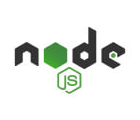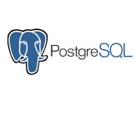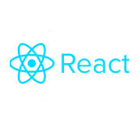If you are working on a huge chunk of unstructured data, MongoDB is your best choice for storing them. It also lets you add multiple fields quickly based on your requirements.
The complete open-source development platform known as MEAN (MongoDB, ExpressJS, AngularJS, & Node.js) enables programmers to write all JavaScript code, from client to server.
For improved performance, MongoDB makes it simpler to retrieve a large amount of dispersed data from among the several cloud servers.
The flat data structure of MongoDB enables the efficient analysis of large volumes of location-based data. This facilitates decision-making using AI.
Aripro's team comprises MongoDB experts who deeply understand the platform's capabilities. They leverage this knowledge to tailor solutions that precisely meet clients' needs.
Aripro offers highly customizable MongoDB services, ensuring that solutions align perfectly with clients' requirements and business goals.
With Aripro, clients can rest assured that their MongoDB deployments are built to scale effortlessly as their data and user base grow, future-proofing their applications.
Aripro provides exceptional support throughout the entire lifecycle of MongoDB implementations, from initial planning and deployment to ongoing maintenance and optimization, ensuring clients' success every step of the way
With advanced tech expertise, we can engineer industry-standard web solutions for your business. If you want to hire MEAN / MERN stack developers, feel free to contact us.















MongoDB is a NoSQL database, which means it offers a flexible schema design. You can store data in JSON-like documents, making it easy to represent complex hierarchical relationships without the need for predefined schemas. This flexibility allows for faster development cycles and easier adaptation to changing data requirements.
MongoDB is designed to scale horizontally. This allows you to distribute your data across multiple servers or clusters as your application grows. This horizontal scaling approach enables you to handle large volumes of data and high traffic loads efficiently, ensuring performance and availability.
MongoDB is optimized for high performance, with features such as in-memory caching, automatic sharding, and index support. These features enable fast read and write operations, making MongoDB suitable for real-time applications and high-throughput workloads.
MongoDB provides a powerful query language with support for a wide range of query operations, including CRUD operations (Create, Read, Update, Delete), aggregation, geospatial queries, text search, and more. This rich query language allows you to retrieve and manipulate data in various ways, providing flexibility in data access and analysis.
MongoDB offers built-in support for automatic failover and data replication, ensuring data durability and high availability. With features like replica sets and automatic failover, MongoDB can maintain data consistency and recover from hardware failures or network partitions without manual intervention.
Do you have any doubts about our MongoDB technology? Go through the frequently asked questions and their respective answers specially designed for our customers. Feel free to talk to our experts to seek answers to any questions.
MongoDB is a popular NoSQL database management system, designed for storing, retrieving, and managing large volumes of data.
MongoDB offers flexible schema design, horizontal scalability, and high performance, making it ideal for modern, data-intensive applications.
MongoDB uses a document-oriented model, allowing for more flexible data structures and faster development cycles compared to traditional SQL databases.
Yes, MongoDB's horizontal scalability and automatic sharding make it well-suited for handling large volumes of data and high traffic loads.
Yes, MongoDB supports nested documents and arrays, enabling the storage of complex data structures in a single document.